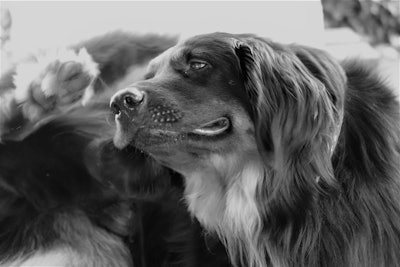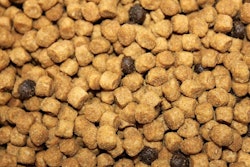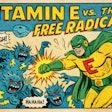
A clinical study published in Animals has revealed that Kingdom Superculture's Pet Immune postbiotic ingredient may help reduce scratching behavior in dogs while supporting overall skin and coat health.
The randomized, double-blind, placebo-controlled trial demonstrated that dogs receiving an indole-rich canine immune health postbiotic (CIHP) experienced a 20% reduction in scratching behavior and a 27% improvement in human-perceived itching scores compared to those receiving a placebo. According to the study, these improvements were observed in just 14 days.
The challenge of canine itching
According to the study, itching affects millions of dogs worldwide and represents one of the most common reasons pet owners seek veterinary care. The condition is primarily caused by atopic dermatitis, a chronic inflammatory skin disease that significantly impacts quality of life for both dogs and their families.
"Current treatment approaches are often complex, prolonged, and individually tailored," noted the research team. "In severe cases, treatment involves immunomodulatory drugs, which create barriers to adoption for many pet owners."
The economic impact can also be substantial. Traditional treatments can be expensive and require ongoing veterinary supervision, making preventive nutritional solutions increasingly attractive to both pet owners and industry professionals.
The gut-skin connection
The study was designed to build on emerging research highlighting the critical relationship between gut health and skin conditions, known as the gut-skin axis. Dogs with atopic dermatitis consistently show reduced gut microbiome diversity and increased intestinal permeability, which can trigger inflammatory responses that manifest as skin problems.
"The gut microbiome influences both immune responses and skin barrier function," researchers noted. "Supporting a healthy gut microbiome in itching dogs may help prevent the progression of atopic dermatitis."
This understanding has led to increased interest in microbially-derived ingredients, though previous studies with probiotics and other postbiotics have shown limited success in addressing canine itching.
Indoles: A key differentiator
What sets this particular postbiotic apart is its high concentration of indoles — specialized metabolites produced by healthy gut bacteria through tryptophan metabolism. These compounds circulate throughout the body and activate the aryl hydrocarbon receptor (AhR), a master regulator of immune and inflammatory responses that has been directly linked to itch control.
"Indoles are well-characterized to activate AhR, which regulates host-microbe interactions and immune function," the research team said. "Research has demonstrated that AhR activation through indoles shows significant therapeutic promise for inflammatory skin conditions."
According to the team, the connection between indoles and skin health has been further validated by the success of AhR-targeting medications in human dermatology, including tapinarof, which has been shown to reduce itching in humans with inflammatory skin conditions.
Performance data
The clinical trial results position this indole-rich postbiotic as significantly more effective than existing alternatives. When compared to other placebo-controlled studies on biotic ingredients for itching, five studies on probiotics or postbiotics showed no significant impact on itching, while only two probiotics demonstrated a modest 10% reduction in itching scores after 14 or 28 days of intervention.
"To the best of our knowledge, these results suggest that CIHP outperforms other pet biotics by over 2.5 times on itching reduction," the researchers said.
The ingredient also demonstrated additional benefits beyond itch relief, noted the team. Dogs receiving the postbiotic showed improved skin and coat quality within 14 days, suggesting the ingredient addresses multiple aspects of dermatological health simultaneously.
Microbiome benefits
Beyond its anti-itch properties, the postbiotic demonstrated significant positive effects on gut microbiome health. Dogs receiving the ingredient showed a 4.6% increase in Shannon diversity, a key measure of microbiome health, at Day 28. This is particularly significant because healthy dogs typically have higher microbiome diversity than those with inflammatory conditions.
The ingredient also increased the abundance of beneficial bacteria associated with indole production, including Clostridium and Romboutsia. These bacteria support gut health by producing anti-inflammatory compounds and improving intestinal barrier integrity.
"The evidence suggests that indole-rich postbiotics like CIHP are able to modulate the gut-skin axis by promoting a healthy gut microbiome and may be more efficacious than other microbially-derived solutions," the researchers concluded.
While this study focused specifically on dogs with subclinical but elevated itching behavior, the researchers suggested the ingredient may have broader applications. The mechanism of action — supporting the gut-skin axis through indole compounds — could potentially benefit dogs with diagnosed atopic dermatitis or other immune-related conditions.
Study Details: The research involved 30 dogs in a registered facility, stratified into two groups based on baseline scratching frequency. Dogs received either the indole-rich postbiotic or placebo as a powder topper for 28 days. Itching was measured using accelerometer devices and standardized visual analog scales, while gut microbiome analysis was conducted through fecal sample sequencing.
The full study, titled An Indole-Rich Postbiotic Reduces Itching in Dogs: A Randomized, Double-Blinded Placebo-Controlled Study, is available in the open-access journal Animals.

















